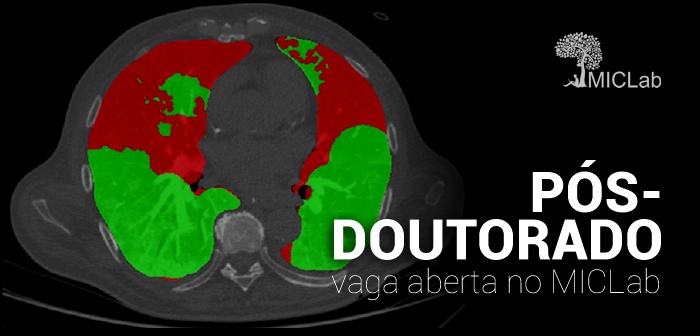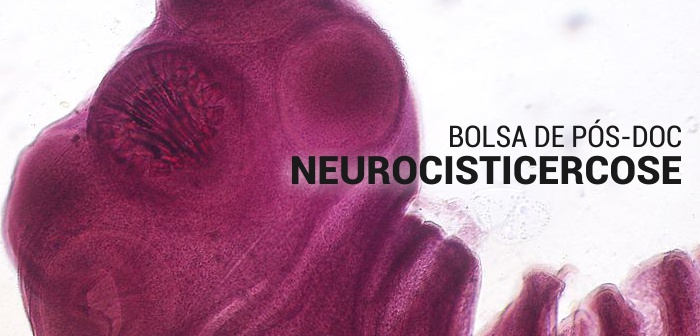We seek a postdoctoral fellow with experience in i) Functional study techniques for sodium channels, cell electrophysiology (Patch Clamp); II) molecular biology tools for DNA, RNA and protein analysis(Sanger Sequencing, NGS, Rt-qPCR and Western Blot); III) immunofluorescence techniques, immunoassay for characterization of protein expression; IV) Cell culture and heterologous expression of mammalian cells and V) capturing and processing electrophysiological recordings.
The prospect postdoctoral fellow will work in a large government funded research project in a very dynamic university-based laboratory.
Applicants must have a Ph.D. degree and show good scientific communication skills by having published at least two papers in peer-reviewed scientific journal. Language requirements: proficiency in English, Spanish or Portuguese.
Funds are available for two year. Please send a CV and two recommendation letters to [email protected], until March 10th, 2023.
This opportunity is open to candidates of any nationalities. The selected candidate will receive a FAPESP’s Post-Doctoral fellowship in the amount of R$ 8.479,20 monthly and a research contingency fund, equivalent to 15% of the annual value of the fellowship which should be spent in items directly related to the research activity.
More information about the fellowship is at: www.fapesp.br/en/
NOTES:
Employer will assist with relocation costs.
Opportunity: Postdoctoral Fellowship in Medical Image and Data Analysis using Machine Learning
The Medical Image Computing Lab at Unicamp has an opportunity for students interested in machine learning and medical image analysis. Read more…
Postdoctoral position in Neurocysticercosis: unraveling the molecular mechanisms underlying parasite-host interaction
We seek a postdoctoral fellow with experience in i) Animal (rodents) manipulation; II)high-throughput techniques such as Next-generation sequencing; III) molecular biology tools for DNA, RNA and protein analysis (qPCR, Sanger Sequencing and Western Blot) and IV) immunofluorescence techniques for the analysis of how the transcriptome of a natural and unnatural host’s brain (single-cells and tissue) adjacent to the cyst changes over the course of infection.
The prospect postdoctoral fellow will work in a large government funded research project in a very dynamic university-based laboratory.
Applicants must have a Ph.D. degree and show good scientific communication skills by having published at least one first authorship paper in peer-reviewed scientific journal in the last three years. Language requirements: proficiency in English, Spanish or Portuguese.
Funds are available for two years. Please send a CV and two recommendation letters to [email protected], until March 3rd, 2020.
This opportunity is open to candidates of any nationalities. The selected candidate will receive a FAPESP’s Post-Doctoral fellowship in the amount of R$ 7.373,10 monthly and a research contingency fund, equivalent to 15% of the annual value of the fellowship which should be spent in items directly related to the research activity.
More information about the fellowship can be found at: www.fapesp.br/en/.
NOTES:
Employer will assist with relocation costs.
Post-doc opportunity at the National Institute on Aging
Postdoctoral Fellow
The National Institute on Aging (NIA), Intramural Research Program (IRP), and the National Cancer Institute (NCI), Center for Cancer Research (CCR), both major research components of the National Institutes of Health (NIH) and the Department of Health and Human Services (DHHS), are recruiting for a Postdoctoral Fellow in the Longitudinal Studies Sections (LSS) of the Translational Gerontology Branch (TGB) of NIA. This position is a joint appointment, funded by the NIA, and will be located in Bethesda, MD during the first period of fellowship and subsequently in Baltimore, MD for the remainder of the fellowship.
The NIA IRP TGB LSS, under the leadership of Luigi Ferrucci, M.D., Ph.D., focuses on mechanisms underlying heterogeneity in human health and function with aging, including molecular, cellular, physiologic, and behavioral factors. In addition to their longitudinal studies of aging, including the Baltimore Longitudinal Study of Aging (BLSA) and Genetic and Epigenetic Signatures of Translational Aging Laboratory Testing (GESTALT), they carry out smaller human studies of mechanisms and collaborate with other laboratories to pursue translational aging research across species.
The NCI CCR RNA Processing in Cellular Development Section, under the leadership of Shalini Oberdoerffer, Ph.D., broadly examines how DNA and RNA epigenetics dynamically regulate gene expression. They ask how methylation of cytosine in DNA affects pre-mRNA splicing decisions (Shukla et al., Nature, 2011; Marina et al., EMBOJ, 2016), and how subsequent acetylation of cytidine in processed mRNA affects translation (Arango et al., Cell, 2018). They use a variety of tools to investigate the enzymatic regulation of cytosine modifications and the net impact at target genes and genome-wide. Current efforts are focused on developing physiologically relevant model systems that interrogate how the epigenome and epitranscriptome are modulated in response to environmental cues to dynamically regulate cellular proteomes.
In collaboration with NCI, the postdoctoral fellow will examine the role of DNA and RNA modifications in determining: 1) how a single gene generates multiple protein-coding splice variants, and 2) how a single mRNA molecule dictates distinct protein fates during the process of translation; 3) whether these mechanisms affect some of the hallarks of aging, including mitochodrial function, metabolic regulation, and response to exercise, or other metabolic challenges such as caloric restriction. The fellow will be mentored jointly by the two laboratories and will lead this collaborative project under the mentorship of Dr. Ferrucci (NIA) and Dr. Oberdoerffer (NCI).
Eligible candidates must have a recent Ph.D. degree in the Biomedical Sciences. An ideal candidate will have a strong interest in Molecular and Cellular Biology, ideally in the context of cancer and aging. To apply, please send a cover letter, curriculum vitae and bibliography, statement of research interest (1-2 pages), and contact information for three references to: Jamie Hertzfelt, Intramural Program Specialist; Office of the Scientific Director; Vacancy #NIA-IRP-20-08; National Institute on Aging, Biomedical Research Center, 251 Bayview Boulevard, Suite 100, Room 04C232, Baltimore, MD 21224 or email: [email protected]. Applications must reference Vacancy #NIA-IRP-20-08 for consideration. The first round of reviews is expected to occur around February 1, 2020; however, applications will be accepted until the position is filled. This position is subject to a background investigation. Additional information regarding the NIA IRP is available at the following website: www.irp.nia.nih.gov.
DHHS and NIH are Equal Opportunity Employers
The NIH is dedicated to building a diverse community
in its training and employment programs.
Postdoctoral opportunity in genetics and epilepsy
Learn more about the postdoc position to work with the genetic basis of familial mesial temporal lobe epilepsy Read more…










 Português do Brasil
Português do Brasil